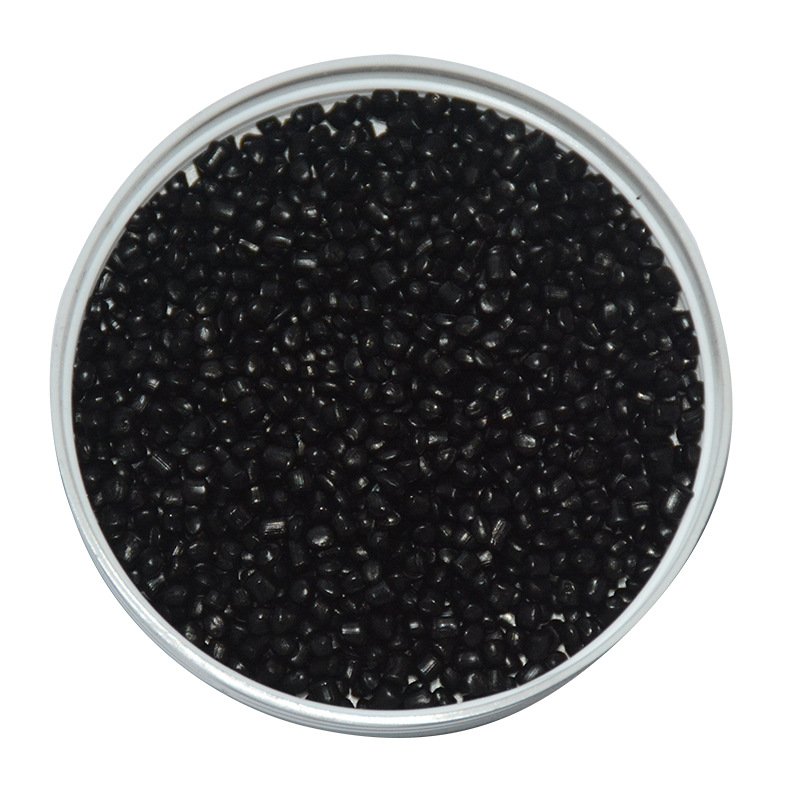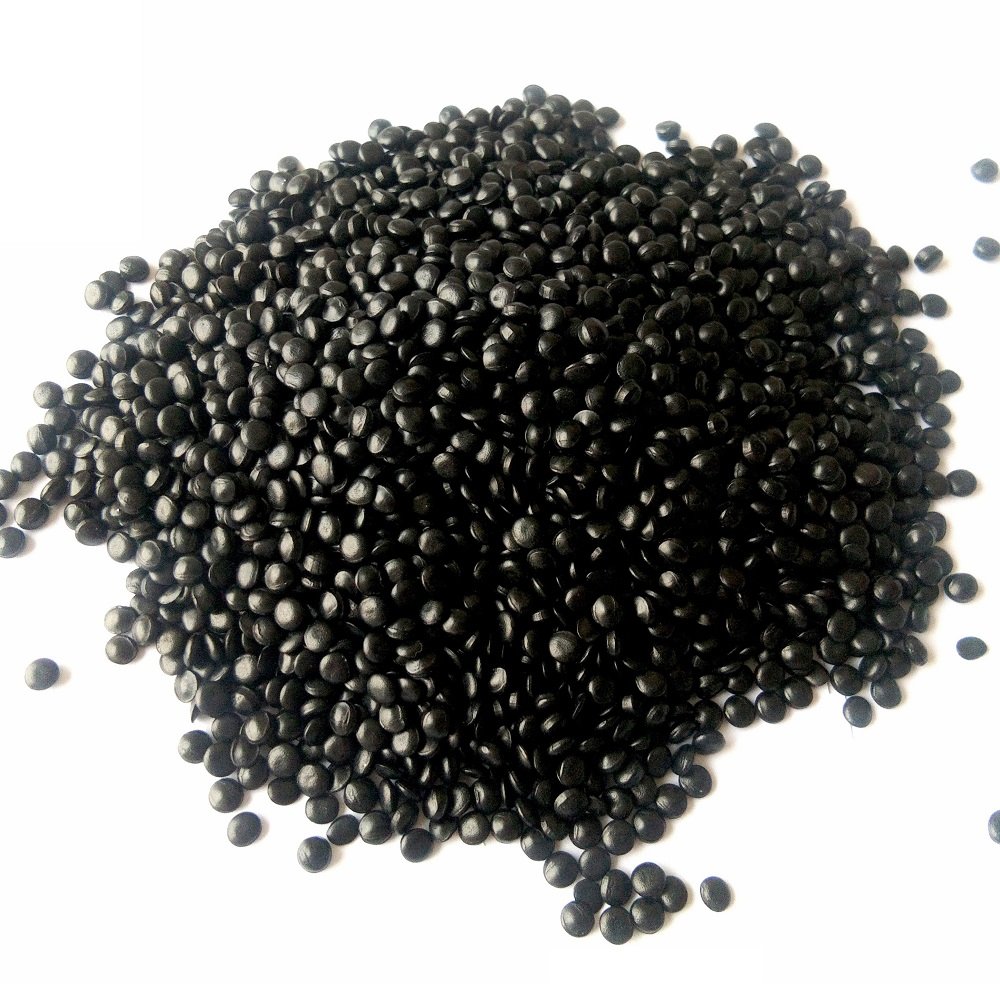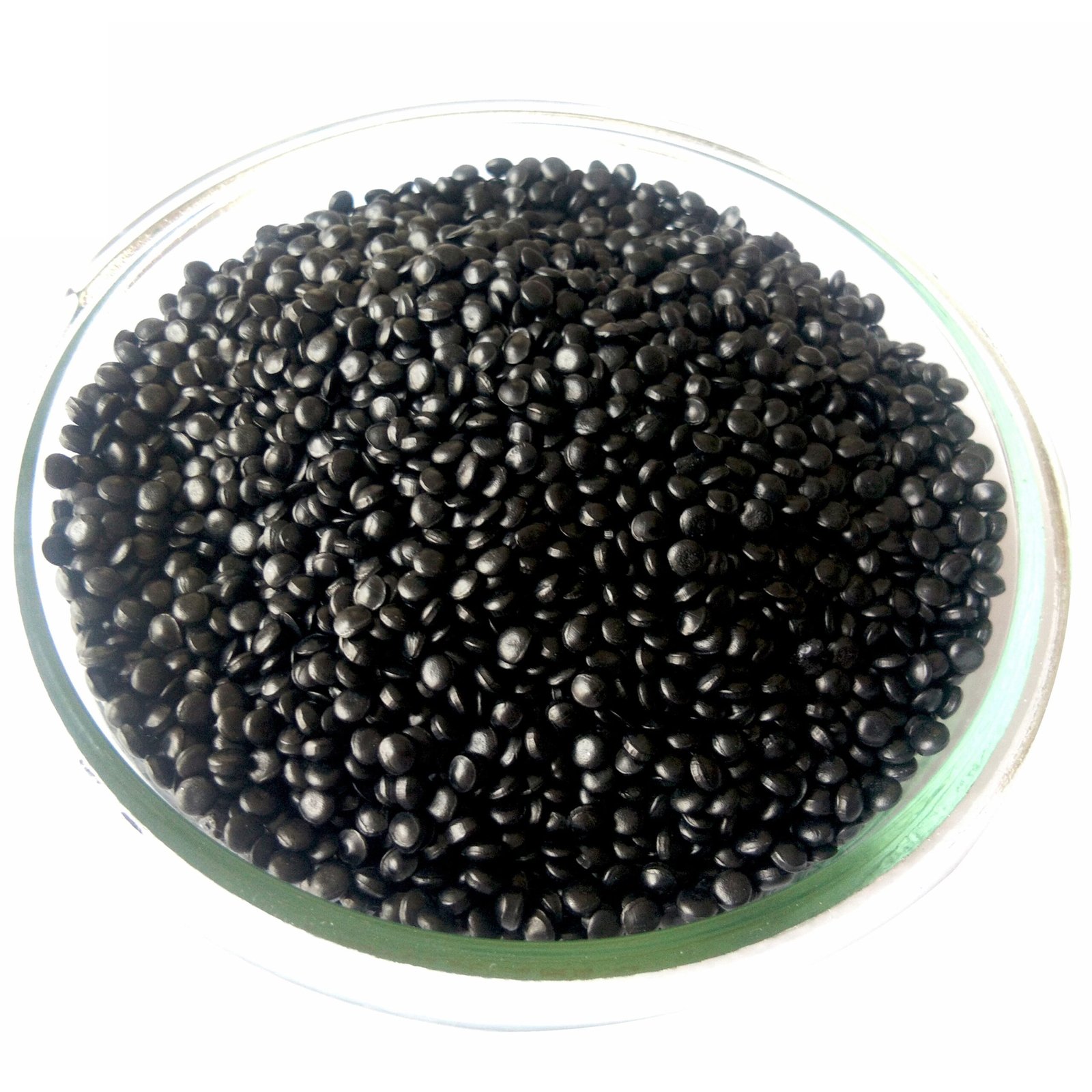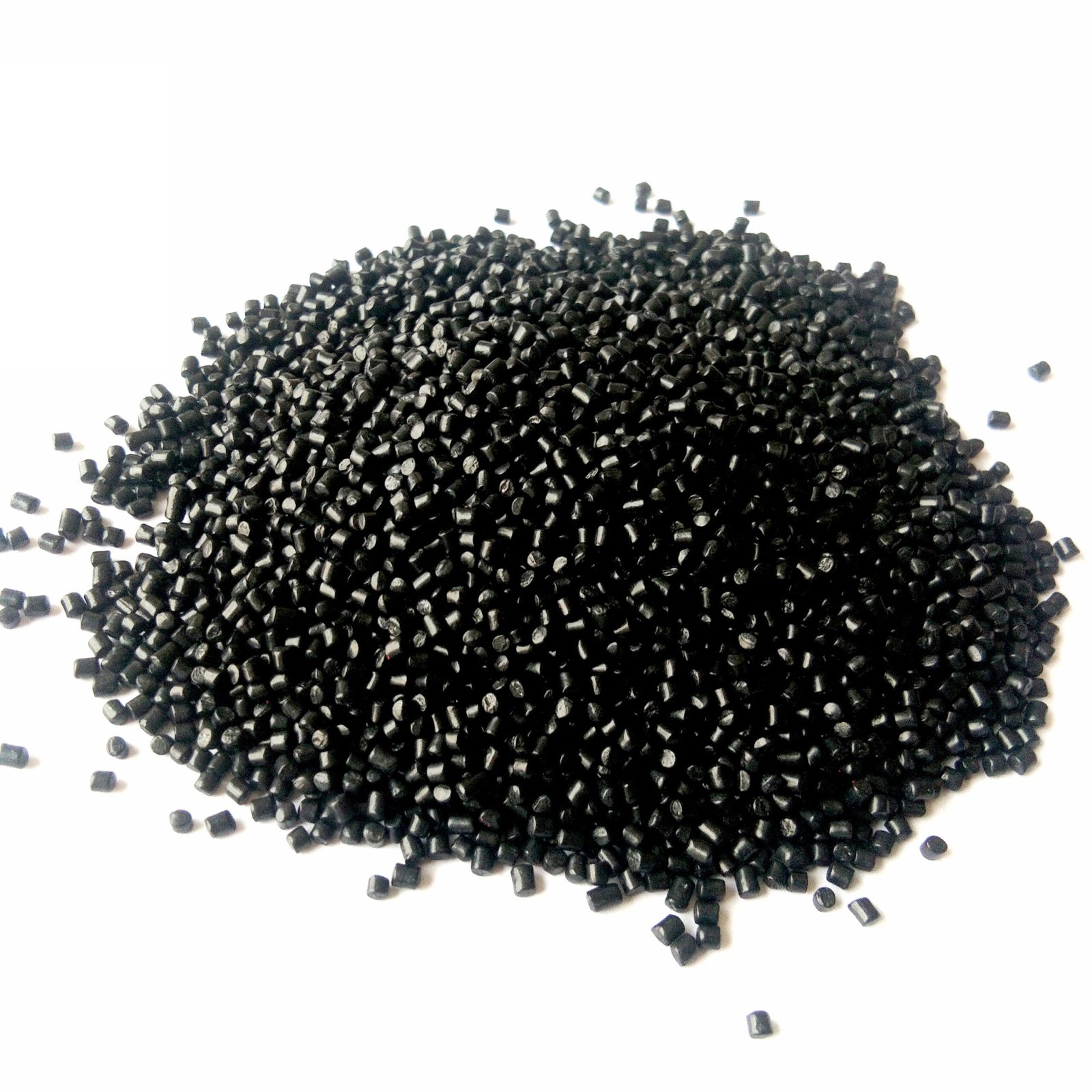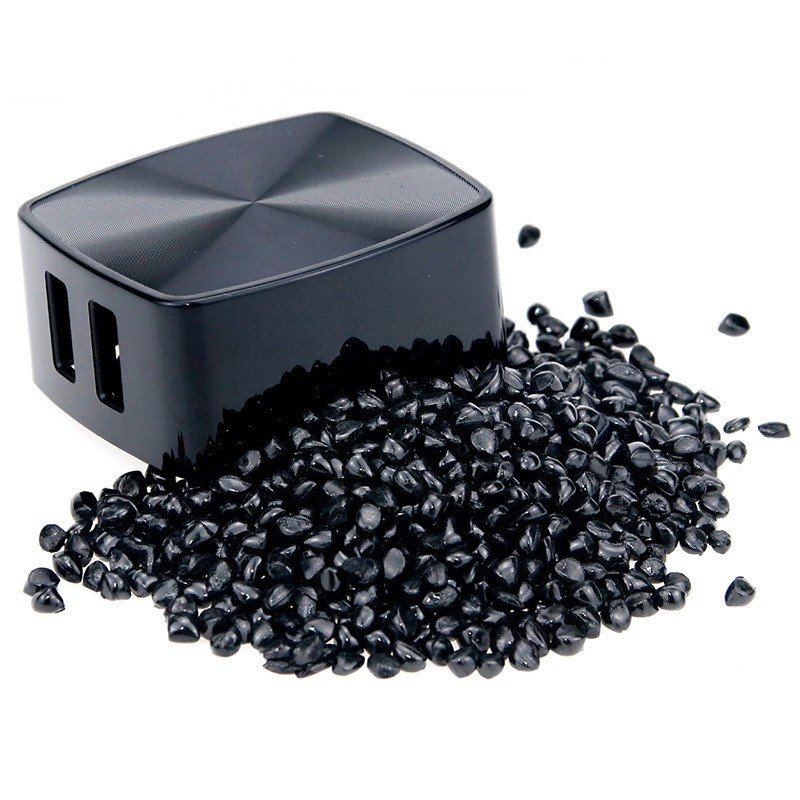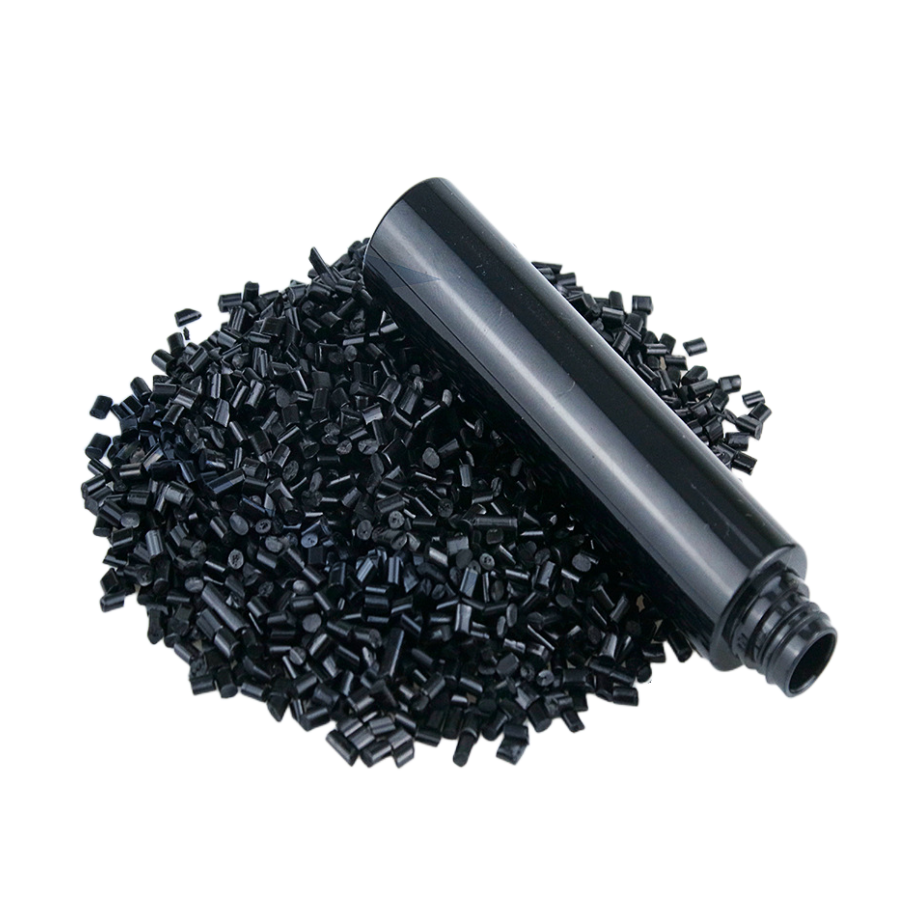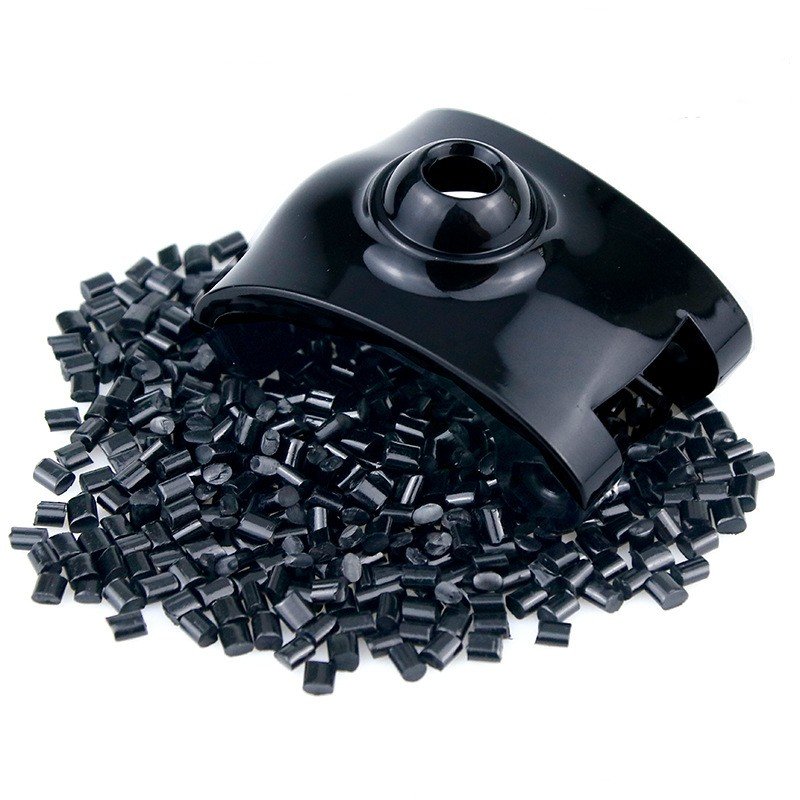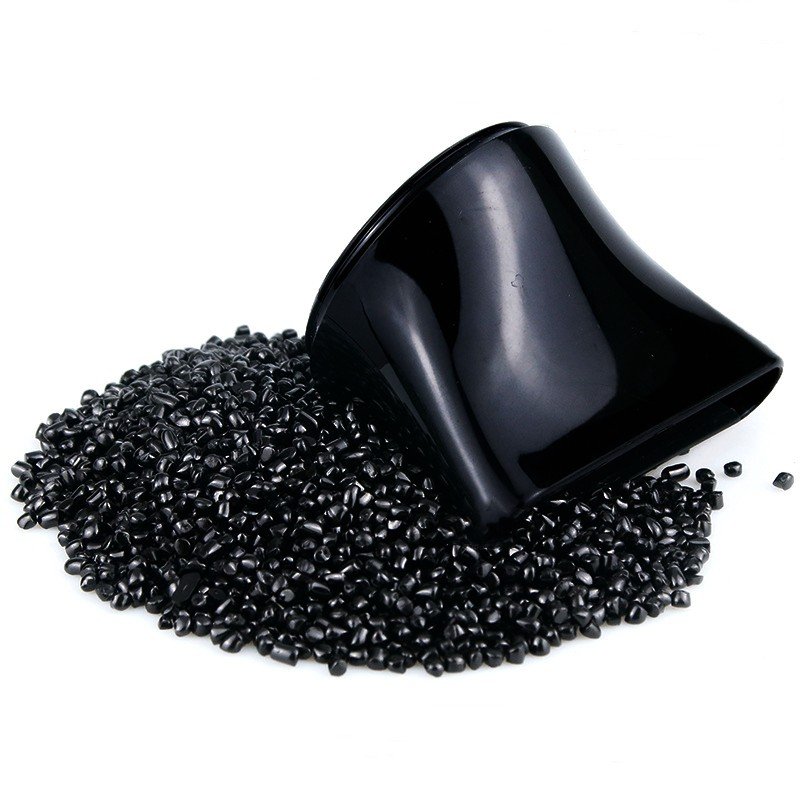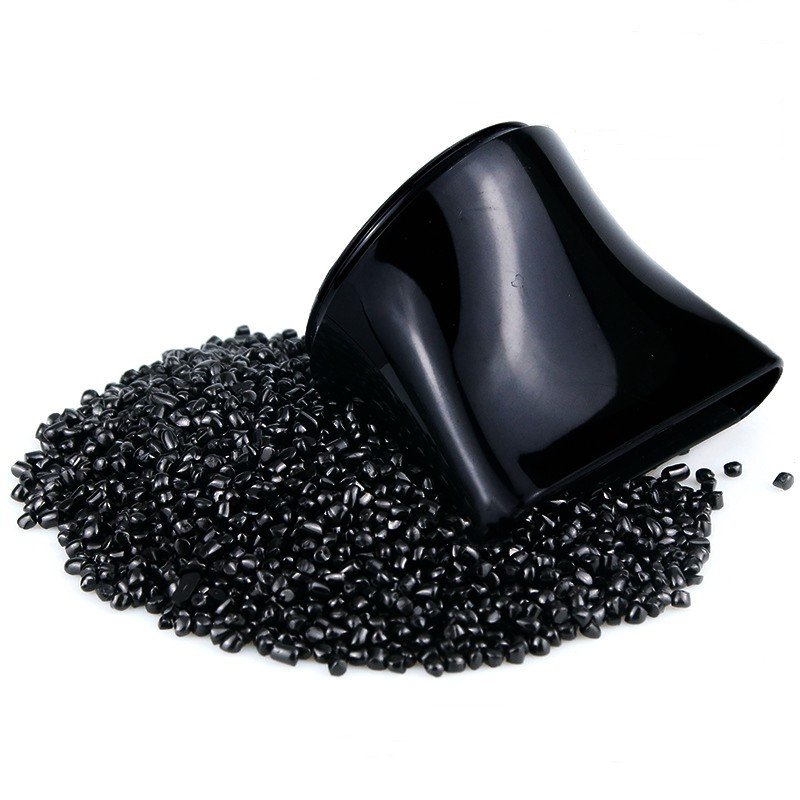
High-Quality Black Masterbatch Products for Diverse Applications | Your Trusted Partner in Polymer Solutions
Discover our wide selection of black masterbatch products designed to meet various product specifications. As a trusted partner for polymer producers, compounders, fabricators, and specifiers, we offer innovative and comprehensive solutions for all your needs.
Black Masterbatch
The composition of our black masterbatch consists of Domestic (Imported) Carbon Black (Black pigment), Synthetic Resin (Virgin or Recycled PE/LDPE/LLDPE/PP/PVC/EVA/PA/PS/PET/PBT/ABS), Dispersant (PE Wax), and Various additives (coupling agents).
The carbon black contents can be customized, ranging from 10% to 50%. The size of the masterbatch can also be customized, with options like 1mm*3mm, 1.5mm*3mm, 2mm*3mm, and 2.5mm*3mm. The recommended dosage is 1% to 8%. Carbon black can be classified as high-quality or general carbon black.
Additional information
| Color | Jet black, deep black, carbon black, matte black, off-black, glossy black, mirror black, customized black |
|---|---|
| Carier | HDPE, LDPE, PP, PS, PC, PE, AS, PA, ABS, EVA, PVC, PBT, POM, PET, TPU, TPE |
| Process | Film Blowing, Injection Molding, Blow Molding, Extrusion, Casting, Roto Molding, Thermoforming |
Product Details | Color Masterbatches
Product Description
Black Masterbatch is an essential additive in the plastic industry, allowing manufacturers to produce high-quality black plastic products for various applications. It is a concentrated mixture of carbon black pigment and a carrier resin, typically a thermoplastic polymer like polyethylene (PE), polypropylene (PP), or polystyrene (PS).
The carbon black pigment in the black masterbatch provides a deep black color to the plastic product. The carrier resin ensures easy incorporation of the masterbatch into the base polymer during manufacturing, resulting in a uniform distribution of color.
Our black masterbatch is widely used in various automotive, electronics, packaging, and construction industries. It is used to produce various products such as automotive parts, electrical appliances, pipes, films, and packaging materials.
Carbon black concentration in masterbatch varies based on the desired shade & application. % content & type are expertly adjusted to improve product performance, quality, & processing. UV stabilizers, processing aids, & antistatic agents can also be added.
Product Specification
| Item | Value |
| Place of Origin | Guangdong, China |
| Brand Name | DOME |
| Model Number | DM-BM2330 |
| Product Name | Carbon Black Masterbatch |
| Appearance | Granule Pellets |
| Certification | ISO 9001 ROHS |
| Carrier | PE HDPE LDPE PP PA PS PC PS AS ABS TPU TPV EVA PBT POM HIPS PET PLA PVC etc. |
| Usage | Blowing Film Extrusion Molding Injection |
| Application | Injection Molding |
| Compatibility | HDPE. LDPE.PP.PS.AS.ABS.EVA.PVC.ABS. TPU. TPV. EVA.PBT.POM.HIPS. PET. PLA etc. |
| Density(g/m3) | 1.2-1.5 |
| Moisture Content | <0.1% |
| MFI/ MFR (21.6KG/ 200℃) | 37 g /10min (Customized) |
| Carbon Black Content | 10%-60% |
| Carbon Black type | N220/N326/N330/N550 |
| Material | +Carbon +Carrier (PE/TPU/TPE/ABS/PP/LLDPE/HDPE/LDPE/PS/PA/PVC/EVA etc.) +Resin and special additives |
| Grain Diameter(mm) | 1.8-3.8 |
| Light and Weather Resistance | 4-8 |
| Chromatic Aberration | ≤0.8% |
| Temperature Resistance(℃) | 120℃-280℃ |
| Melting Point | 140℃-250℃ |
| Phase Fusibility | PE/PP/PVC |
| Color | Customized |
| Light Fastness | Grade 4-8 |
| Heat Resistance | ≥5 |
| Migration Resistance | ≥4 |
| Filler | CaCO3 or None |
| Add Ratio | Recommend adding 2%-5% (The optimal addition amount depends on many factors: polymer type, melt flow rate, other additive types and contents, final product structure, thickness, application fields, desired flame retardant properties, processing methods, etc. The optimum dosage must be obtained through experimentation. Processing temperature 180~200℃) |
| Product Features | ① 100% virgin material, meet environmental protection requirements; ② Competitive price, good dispersion, strong applicability, high concentration, heat resistance, VCI resistance, etc. ③ Stable product quality, ensure that the samples are consistent with the bulk goods; innovative and characteristic products are available for selection; ④ Accept OEM/ODM service. |
| Product Application | They are widely used in Film Blowing, Blow Molding, Injection Molding, Extrusion Molding, Casting Film, Wire Drawing, and many other processes. • Fiber (Carpet, Textiles, Upholstery, etc.) • Film (Shopping bags, Casting film, Multilayer film, etc.) • Blow Molding (Medical & Cosmetic container, Lubricant & Paint container, etc.) • Extrusion Molding (Sheet, Pipe, Wire & Cable, etc.) • Injection Molding (Automotive, Electronic, Construction, House wares, Furniture, Toys, etc.) |
| Package | 25kgs Paper Plastic composite Bag with carton |
| MOQ | 1 Kg and Free Sample Available |
Take Your Business to The Next Level
DOME Materials’ black masterbatch provides consistent color, effective dispersion, and cost-efficiency. It achieves uniform black color in plastic products, eliminating the need for additional coloring processes. High blackness, brightness, coverage, weather resistance, strong coloring, even dispersion, good compatibility, no needle spots, fog, stains, or bands. It does not block the blue phase, accumulate dust, or experience migration. Resistant to aging, easy to dilute and mix, suitable for automated production.
Black Masterbatch | Application
Black masterbatch is a concentrated mixture of carbon black pigment, carrier resin, and additives. It is widely used in various industries for its ability to provide intense black color to plastic products. Some common applications of black masterbatch include:
1. Packaging industry: Black masterbatch is extensively used in the packaging industry to produce black plastic films, bags, bottles, and containers. The intense black color enhances the aesthetic appeal of the packaging and provides UV protection to the packaged contents.
2. Automotive industry: Black masterbatch is used in the manufacturing of automotive components such as bumpers, dashboards, interior trims, and door panels. The black color enhances the visual appeal of the components and provides UV stability, ensuring long-lasting durability.
3. Construction industry: Black masterbatch is used in the production of pipes, fittings, roofing sheets, and other construction materials. The black color provides UV resistance, preventing degradation of the materials exposed to sunlight and enhancing their longevity.
4. Electronics industry: Black masterbatch is used in the production of electronic components such as casings, connectors, and cables. The black color helps in heat dissipation and provides a sleek and professional appearance to the electronic devices.
5. Household goods: Black masterbatch is used in the manufacturing of various household items such as furniture, appliances, toys, and kitchenware. The black color adds a touch of elegance to these products and hides any imperfections or scratches.
6. Agriculture industry: Black masterbatch is used in the production of agricultural films, mulch films, and irrigation pipes. The black color helps in weed control by blocking sunlight and preventing the growth of unwanted plants.
7. Sports and leisure industry: Black masterbatch is used in the production of sports equipment, outdoor furniture, and recreational products. The black color provides a modern and stylish appearance to these products and enhances their durability.

PP PE PVC PC Black Masterbatch for skin care product daily necessities packaging

PE PC PVC TPU TPE Black Masterbatch for pressure pipeline, drip irrigation pipe and other pipes

PP PC PVC Black Masterbatch for food packaging boxes, tableware

ABS PBT PA PP PC PC/ABS Black Masterbatch for plastic sheet

ABS PP PC PC/ABS PA PBT Black Masterbatch for household appliances, electronic products
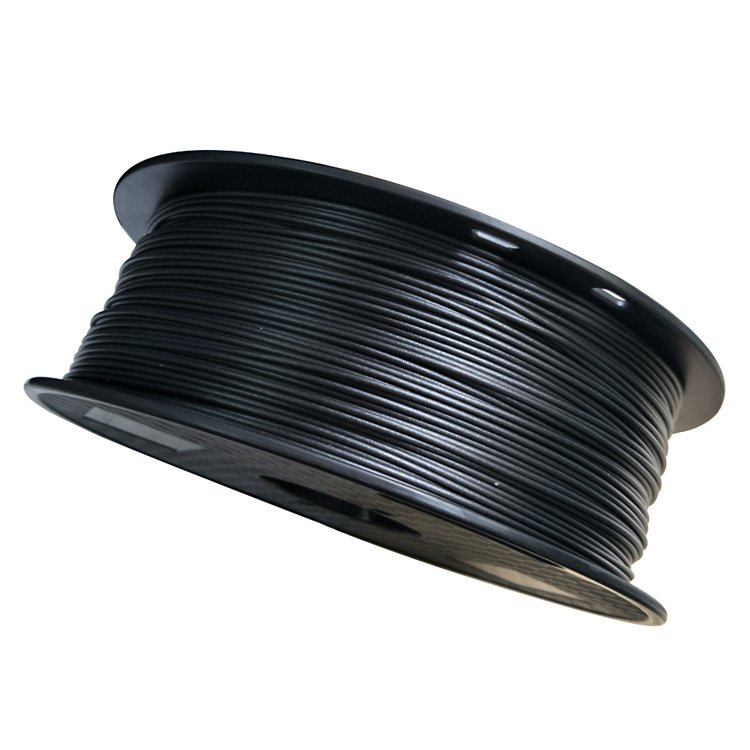
PA6/PA66 Color Masterbatch for Power Tool Housing

ABS Color Masterbatch for large electrical, medical, and beauty equipment casings
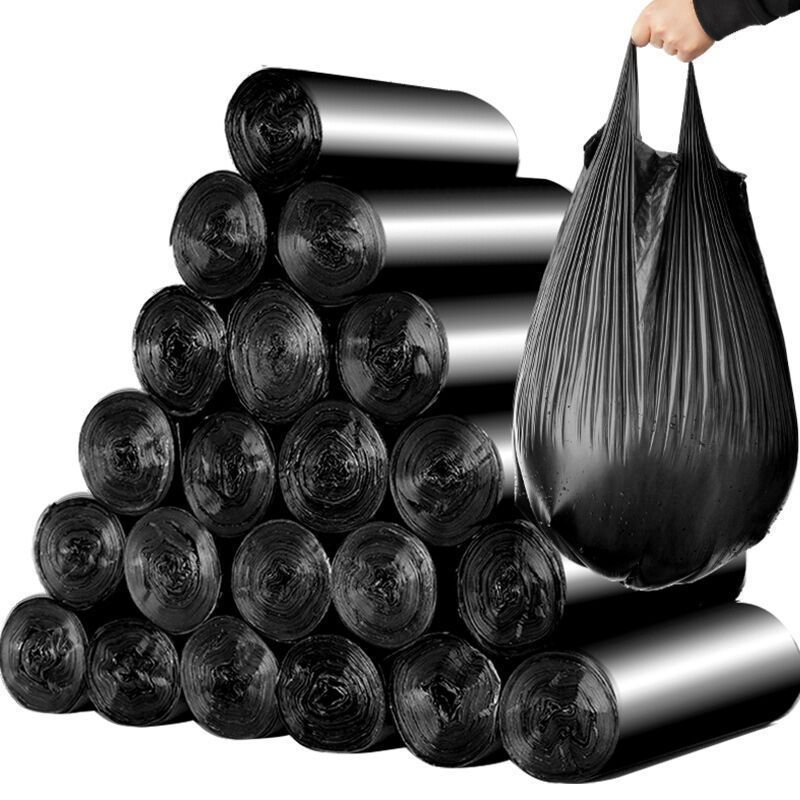
PE Black Masterbatch for agricultural film, packing film, composite membrane, greenhouse membrane, geomembrane
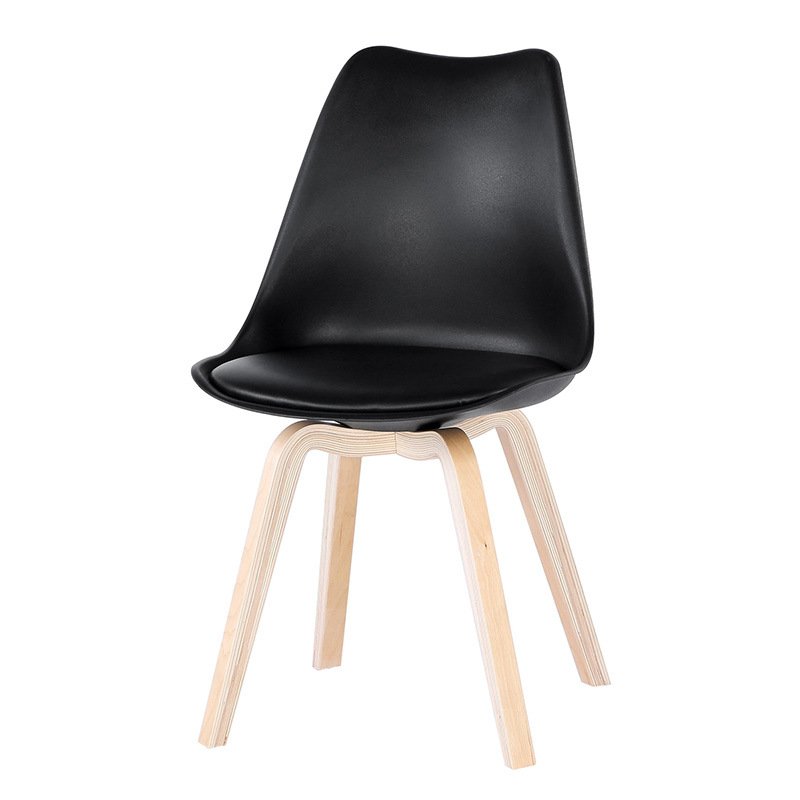
PLA TPU ABS PETG Black Masterbatch for 3D printing
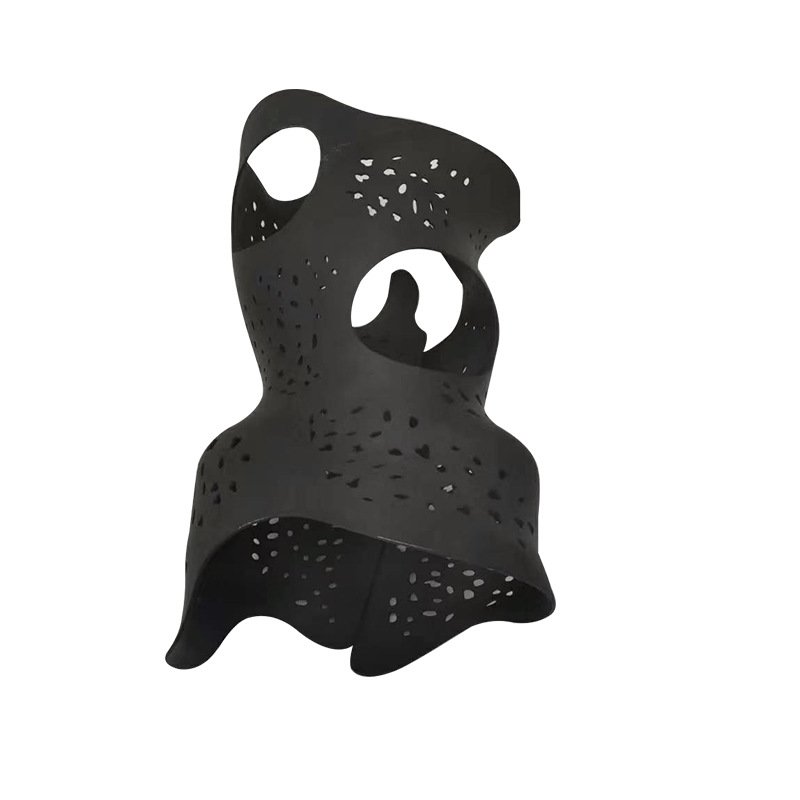
PBT PA66 Black Masterbatch for toolboxes, pallets, transport containers
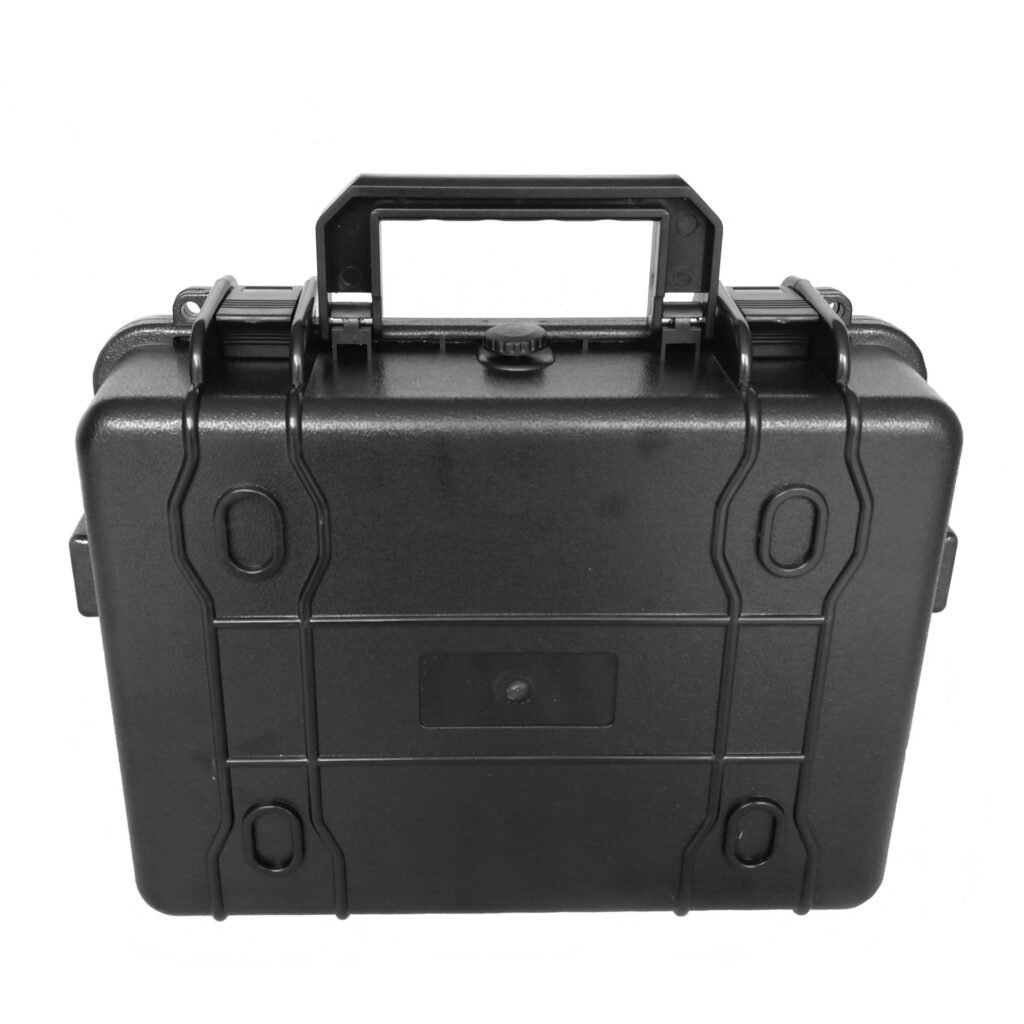
PC PP ABS PA66 Black Masterbatch for plastic furniture, household items
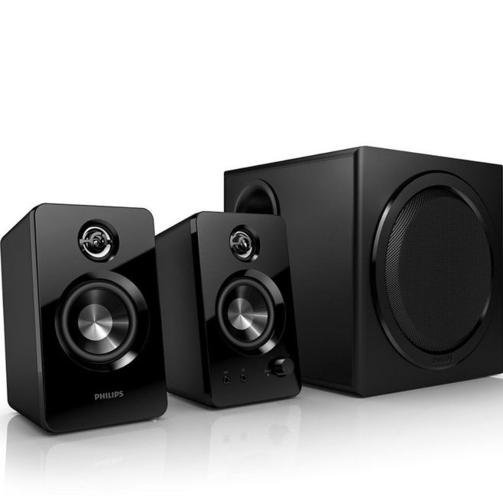
PC/ABS PA66 PBT ABS Black Masterbatch for home appliances

BENEFITS & PROPERTIES OF MASTERBATCHES FOR THE PLASTICS SECTOR
- Enhanced Aesthetics
- Cost-Effective Solution
- Customization
- Consistency and Uniformity
- Ease of Use
- Optimized thermal stability
- Improved UV Resistance
- Greater production flexibility
- Improved Product Identification
- Environmental Benefits
Frequently Asked Questions
Black masterbatch is a type of additive used in the plastics industry to impart black color to plastic products. It is a concentrated mixture of carbon black pigment, carrier resin, and various additives. The masterbatch is typically added to the base polymer during the manufacturing process to achieve the desired black color in the final plastic product. Black masterbatch is widely used in industries such as automotive, packaging, electronics, and construction to produce items like pipes, films, cables, automotive parts, and consumer goods. It provides uniform and consistent black coloration, enhances UV resistance, and improves the overall appearance of plastic products. What is black masterbatch?
Black masterbatch is a type of additive used in the plastics industry to impart black color to plastic products. It is a concentrated mixture of carbon black pigment, carrier resin, and various additives. The masterbatch is typically added to the base polymer during the manufacturing process to achieve the desired black color in the final plastic product. Black masterbatch is widely used in industries such as automotive, packaging, electronics, and construction to produce items like pipes, films, cables, automotive parts, and consumer goods. It provides uniform and consistent black coloration, enhances UV resistance, and improves the overall appearance of plastic products.
There are several advantages of using black masterbatch in plastic manufacturing:
- Color consistency: Black masterbatch ensures uniform and consistent black coloration throughout the plastic product, eliminating any variations or streaks that may occur with other coloring methods.
- Cost-effective: Using black masterbatch is a cost-effective way to achieve black color in plastic products compared to using pre-colored resins or other coloring methods. It allows manufacturers to use a lower amount of pigment while achieving the desired color intensity.
- UV resistance: Black masterbatch often contains additives that enhance the UV resistance of plastic products. This is particularly important for outdoor applications where prolonged exposure to sunlight can cause color fading and degradation.
- Customizability: Black masterbatch can be customized to meet specific requirements, such as different shades of black, different levels of opacity, or additional properties like flame retardancy or conductivity.
- Process optimization: Incorporating black masterbatch into the manufacturing process is relatively easy, as it can be added directly to the base polymer during compounding or extrusion. This simplifies the production process and reduces the need for additional steps or equipment.
- Versatility: Black masterbatch can be used in a wide range of plastic applications across various industries, including automotive, packaging, electronics, and construction. It is compatible with different types of polymers, such as polyethylene (PE), polypropylene (PP), polystyrene (PS), and more.
Overall, the use of black masterbatch offers consistent color results, cost savings, improved UV resistance, customization options, and process efficiency, making it a preferred choice for achieving black color in plastic products.
Black masterbatch is typically used in plastic manufacturing by adding it to the base polymer during compounding or extrusion. Here is a general overview of how black masterbatch is used:
- Compounding: In this stage, the base polymer, which can be pellets or powder, is mixed with various additives, including the black masterbatch. The masterbatch is usually in pellet form for easy handling. The compounding process involves melting the polymer and mixing it with the master batch and other additives in a compounding extruder. This creates a homogeneous mixture.
- Extrusion: The compounded mixture is then fed into an extruder, which melts the polymer and forms it into a continuous molten stream. The black masterbatch disperses evenly throughout the molten polymer, imparting the desired black color.
- Shaping: The molten polymer with the dispersed black masterbatch is then shaped into the desired form, depending on the specific plastic product being manufactured. This can involve injection molding, blow molding, or film extrusion.
- Cooling and solidification: After shaping, the plastic product is cooled and solidified to maintain its shape. This can be achieved through methods like air cooling, water cooling, or using cooling plates.
By incorporating the black masterbatch into the compounding and extrusion stages of the plastic manufacturing process, the black color is uniformly distributed throughout the final product. This ensures consistent coloration and desired properties in the plastic product.
Yes, black masterbatch can be used with different types of plastics. It is compatible with various polymers, including but not limited to:
- Polyethylene (PE): This includes different types of PE, such as low-density polyethylene (LDPE), high-density polyethylene (HDPE), and linear low-density polyethylene (LLDPE).
- Polypropylene (PP): PP is a widely used polymer in various industries, and black masterbatch can be used with it to achieve black coloration.
- Polystyrene (PS): PS is commonly used in packaging, disposable products, and consumer goods. Black masterbatch can be added to PS to achieve a black color.
- Polyvinyl chloride (PVC): PVC is a versatile polymer used in construction, automotive, and electrical applications. Black masterbatch can be used with PVC to achieve black coloration.
- Acrylonitrile butadiene styrene (ABS): ABS is a popular engineering plastic used in automotive, electronics, and consumer goods. Black masterbatch can be added to ABS to achieve a black color.
- Polyesters: Different types of polyesters, such as polyethylene terephthalate (PET) and polybutylene terephthalate (PBT), can be used with black masterbatch.
- Other polymers: Black masterbatch can also be used with other polymers like polyamide (PA), polycarbonate (PC), polyurethane (PU), and more.
It is important to note that the compatibility and performance of black masterbatch may vary depending on the specific polymer and its processing conditions. Therefore, it is recommended to consult with the masterbatch manufacturer or supplier to ensure the compatibility and suitability of the black masterbatch with a specific polymer.
Yes, there are different shades of black available in Masterbatch. While black is typically associated with a dark, opaque color, there can be variations in the intensity and undertones of black that can be achieved with different types of black masterbatch. Some common shades of black include jet black, deep black, carbon black, matte black, and off-black.
The shade of black can be customized by adjusting the concentration of carbon black pigment in the masterbatch. Higher concentrations of carbon black result in a darker and more intense black color, while lower concentrations may produce a lighter or greyish black color. Additionally, the choice of carrier resin and any additional additives in the masterbatch can also influence the shade of black.
We often offer a range of standard black shades, and custom color-matching services are also available to create a masterbatch with a specific shade of black to meet the customer’s requirements. This allows for flexibility in achieving the desired black color in plastic products.
Black masterbatch is made through a compounding process that involves the following steps:
- Selection of carrier resin: The first step in making a black masterbatch is selecting a suitable carrier resin. The carrier resin is the polymer that will be used as the base material for the master batch. Common carrier resins include polyethylene (PE), polypropylene (PP), or polystyrene (PS), among others.
- Selection and addition of carbon black pigment: Carbon black is the primary pigment used to achieve the black color in the master batch. It is a fine powder made from the incomplete combustion of hydrocarbons. The selection of the type and grade of carbon black depends on the desired shade and properties of the black masterbatch. The carbon black pigment is carefully weighed and added to the carrier resin in a precise ratio.
- Mixing and dispersion: In this step, the carbon black pigment is thoroughly mixed with the carrier resin to achieve a homogeneous dispersion. This can be done using specialized mixing equipment, such as twin-screw extruders or high-speed mixers. The mixing process ensures that the carbon black particles are uniformly distributed throughout the carrier resin.
- Addition of additives: Depending on the specific requirements of the black masterbatch, additional additives may be incorporated during the compounding process. These additives can include dispersing agents, processing aids, stabilizers, or other performance-enhancing additives. The additives are carefully selected and added to the mixture to improve the processing and performance characteristics of the master batch.
- Pelletization: Once the mixing and dispersion process is complete, the black masterbatch is typically converted into small pellets or granules for ease of handling and distribution. The molten mixture is forced through a die and then cooled, solidifying into pellet form.
The resulting black masterbatch pellets can then be used in the plastic manufacturing process by blending them with the base polymer to achieve the desired black color in the final plastic product.
Black masterbatch has a wide range of applications across various industries. Some common applications include:
- Packaging: Black masterbatch is used in the production of black plastic films, bags, and containers for packaging applications. It provides opacity, UV protection, and a visually appealing black color.
- Automotive: Black masterbatch is used in automotive applications such as interior and exterior trims, dashboard components, door panels, and other parts that require a black color. It provides UV resistance, and weather ability, and enhances the aesthetics of the vehicle.
- Construction: Black masterbatch is used in construction applications such as pipes, fittings, cables, roofing sheets, and other building materials. It provides UV resistance, durability, and a black color that blends well with construction materials.
- Electrical and Electronics: Black masterbatch is used in electrical and electronic applications such as cables, connectors, switches, housings, and other components. It provides electrical conductivity, UV resistance, and a black color that matches the aesthetics of electronic devices.
- Consumer Goods: Black masterbatch is used in various consumer goods such as household appliances, furniture, toys, and sports equipment. It provides a black color that enhances the appearance of the products and offers UV resistance and durability.
- Agriculture: Black masterbatch is used in agricultural applications such as mulch films, irrigation pipes, greenhouse films, and agricultural packaging. It helps in weed control, and moisture retention, and provides a black color that helps in heat absorption.
- Industrial Applications: Black masterbatch is used in various industrial applications such as industrial containers, tanks, pipes, and fittings. It provides UV resistance, chemical resistance, and a black color that is suitable for industrial environments.
These are just a few examples, and black masterbatch can be used in many other applications where black color is desired in plastic products. The specific requirements and performance characteristics of the black masterbatch can be customized based on the application and end-user requirements.
Yes, there are different types of black masterbatch available to cater to specific application requirements. Some of the common types include:
- Standard Black Masterbatch: This is the most commonly used black masterbatch, which provides a deep black color. It is suitable for a wide range of applications and offers good opacity and UV resistance.
- UV Stabilized Black Masterbatch: This type of black masterbatch is specifically formulated to provide enhanced UV resistance. It is used in applications where prolonged exposure to sunlight or UV radiation is expected, such as outdoor products or packaging.
- Conductive Black Masterbatch: Conductive black masterbatch contains carbon black particles that impart electrical conductivity to the plastic product. It is used in applications where static electricity buildup needs to be controlled, such as in electronics or industrial applications.
- Food Grade Black Masterbatch: This type of black masterbatch is specially formulated to comply with food contact regulations. It is used in applications where the black color is desired, such as food packaging or utensils.
- Flame Retardant Black Masterbatch: Flame retardant black masterbatch contains additives that provide flame resistance to the plastic product. It is used in applications where fire safety is crucial, such as electrical components or building materials.
- High Jetness Black Masterbatch: High jetness black masterbatch is formulated to provide an intense black color with high gloss and depth. It is used in applications where a premium black appearance is desired, such as high-end consumer goods or automotive parts.
These are just a few examples of the different types of black masterbatch available. We can also customize black masterbatch formulations to meet specific requirements, such as specific shades of black, specialized properties, or compatibility with different polymers.
When choosing a black masterbatch manufacturer, there are several factors to consider:
- Quality and Consistency: Look for a manufacturer that has a reputation for producing high-quality black masterbatch that meets industry standards. Consistency in color, dispersion, and performance is crucial to ensure uniformity in the final plastic product.
- Customization Capabilities: Consider the manufacturer’s ability to customize black masterbatch formulations to meet your specific requirements. Different applications may have unique performance criteria, such as UV resistance, conductivity, or flame retardancy. A manufacturer with expertise in customization can tailor the master batch to your needs.
- Technical Support: Choose a manufacturer that offers technical support and assistance throughout the process. They should have a team of experts who can provide guidance on formulation selection, processing conditions, and troubleshooting any issues that may arise.
- Regulatory Compliance: Ensure that the manufacturer follows all necessary regulations and standards for the production of black masterbatch. This includes compliance with food contact regulations, environmental regulations, and any other relevant industry standards.
- Supply Chain and Logistics: Consider the manufacturer’s ability to provide a reliable supply of black masterbatch. Look for a manufacturer with a robust supply chain and efficient logistics capabilities to ensure timely delivery of the product.
- Sustainability: If sustainability is a priority for your business, look for a manufacturer that emphasizes sustainable practices in their production processes. This can include using eco-friendly materials, reducing waste, and implementing energy-efficient manufacturing techniques.
- Reputation and Experience: Consider the manufacturer’s reputation and experience in the industry. Look for reviews, testimonials, and case studies to gauge their track record and customer satisfaction.
- Price and Cost-effectiveness: While price is an important factor, it should not be the sole determining factor. Consider the overall value offered by the manufacturer, including the quality of the product, customization capabilities, technical support, and reliability of supply.
By considering these factors, you can choose a black masterbatch manufacturer that best aligns with your requirements and ensures the successful implementation of your plastic product.
While black masterbatch offers numerous advantages, there are a few potential disadvantages to consider:
- Increased Melt Viscosity: Black masterbatch typically contains a high concentration of carbon black, which can increase the melt viscosity of the plastic. This can affect the processing characteristics of the plastic, such as flowability and mold filling. It may require adjustments to processing conditions or equipment.
- Potential for Surface Defects: Due to the high concentration of carbon black, there is a risk of surface defects such as streaks or specks in the final plastic product. This can be mitigated by using high-quality black masterbatch and ensuring proper dispersion during processing.
- UV Degradation: While black masterbatch provides some level of UV resistance, it may not offer the same level of protection as specialized UV stabilizers or additives. In applications where prolonged exposure to sunlight or UV radiation is expected, additional UV protection may be required.
- Cost: Black masterbatch can be more expensive compared to other types of masterbatch or coloring methods. The higher concentration of carbon black and the additional processing requirements can contribute to higher costs. However, the cost-effectiveness will depend on the specific application and the value provided by the black color.
It is important to evaluate these potential disadvantages in relation to your specific application requirements and weigh them against the benefits offered by black masterbatch. Working closely with a reputable manufacturer and considering their technical expertise can help mitigate any potential drawbacks and ensure successful implementation.
Packing Details for Polymer Masterbatch
Package
- Caton Size: 500*380*160mm
- Weight: 25Kgs/carton
- Polymer masterbatches are packaged in a carton lined with a PE bag
Storage
- Please store in dry and ventilated conditions
- Waterproof and moisture-proof
Avoid sun exposure - Please seal the unused portion of the masterbatch
- Please use it up within 24 months.
Delivery
- Standard masterbatches are available in stock
- 3-7 working days for customized masterbatches

Polymer Masterbatch
Masterbatch Manufacturer Wholesale 10%-50% Carbon Black Masterbatch
We focus on customized white | black | color masterbatch, contact us now for free samples, and let’s work together!

